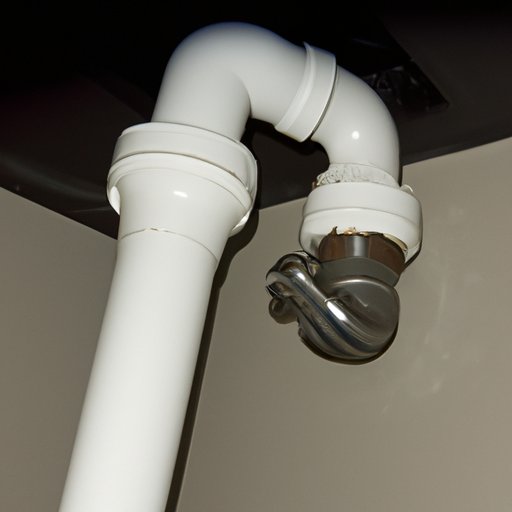Introduction
A power outage, also known as a blackout or an electrical outage, is a period of time when there is no electricity supply to a certain area. In some cases, an electrical outage can last for a few minutes or a few hours; in more severe cases, it can last for days or even weeks. During a power outage, many basic needs are affected, such as access to food, heat, and light. One of the key challenges posed by a power outage is how to access and use water safely and effectively.

How to Use Water for Basic Needs During a Power Outage
During a power outage, it is important to have access to clean drinking water in order to stay hydrated, cook meals, and keep yourself and your family safe. If you have a well on your property, you may be able to use it during a power outage if it has a backup generator. However, if you rely on a public water system, you need to take steps to ensure that you have an adequate supply of water during a power outage. You can do this by filling up containers with water before the power outage occurs, or by purchasing bottled water.
In addition to having access to water, it is also important to conserve water during a power outage. For instance, you should avoid taking long showers or baths, doing laundry, and running the dishwasher. Instead, you should only use the water necessary for basic needs such as drinking, cooking, and hygiene. It is also important to remember that water can be contaminated during a power outage, so you should always boil water for at least one minute before drinking it.
What Are the Risks and Benefits of Using Water During a Power Outage?
Using water during a power outage can be risky if not done properly. For instance, if the power outage lasts for an extended period of time, it can cause pipes to freeze or burst. Additionally, if the water supply is contaminated, it can lead to serious illness. Therefore, it is important to take steps to ensure that the water supply is safe to use.
However, there are also potential benefits associated with using water during a power outage. For instance, it can be used to cool off during hot weather, or to clean up debris after a storm. Furthermore, it can provide much-needed hydration during a power outage, which is particularly important for those who are elderly or ill.
How to Prepare Your Home Plumbing System for a Power Outage
In order to ensure that your home plumbing system is prepared for a power outage, it is important to take the following steps:
- Check the water pressure in your home to make sure it is within the recommended range.
- Make sure all faucets and toilets are in good working order.
- Check the temperature of the water heater to ensure it is not too hot.
- Install a backup generator to ensure that your home plumbing system will continue to function during a power outage.
Having a backup generator for water during a power outage is especially important, as it will allow you to access water even when the power is out. Additionally, it will help prevent pipes from freezing and bursting during extended power outages.

Tips on How to Conserve Water During a Power Outage
Conserving water during a power outage is essential in order to maintain an adequate supply of clean drinking water. To conserve water during a power outage, you should:
- Avoid taking long showers or baths.
- Reduce the amount of laundry you do.
- Only run the dishwasher when necessary.
- Reuse water where possible, such as for flushing the toilet.
- Fill up containers with water before the power outage occurs.
It is also important to remember that water can become contaminated during a power outage, so it is essential to boil water for at least one minute before drinking it.
Conclusion
A power outage can be a challenging and unexpected event, but it is possible to use water safely and effectively during a power outage. In order to do so, it is important to have access to an adequate supply of clean drinking water and to take steps to conserve water. Additionally, it is essential to prepare your home plumbing system for a power outage by checking the water pressure, ensuring all faucets and toilets are in good working order, and installing a backup generator. By following these tips, you can ensure that your home plumbing system is prepared for a power outage and that you have an adequate supply of water.
(Note: Is this article not meeting your expectations? Do you have knowledge or insights to share? Unlock new opportunities and expand your reach by joining our authors team. Click Registration to join us and share your expertise with our readers.)
